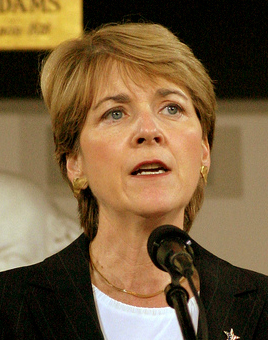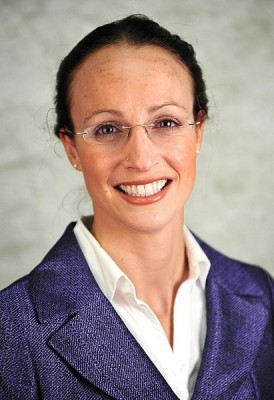I received some criticism for my suggestion earlier this year that Democrats’ top medium-term priority should be recapturing state legislatures before the next redistricting after the 2020 Census to prevent gerrymandering, on the basis that other factors were causing bigger problems for Democrats’ abilities to win legislative and Congressional districts. I still think gerrymandering plays a large role in current electoral hurdles facing Democrats across the country — and one that is being downplayed by some analyses — but I accept that there are other factors.
To that end, I wanted to pull together some extended passages from two recent articles that I think effectively discuss those political demographic challenges.
The first looks, mathematically, at how Democratic vote share and turnout can be increasing (which helps in presidential and Senate races) but Republicans can hold so many Congressional districts. This focuses on urban versus rural districts. Nate Cohn, NYT/The Upshot, “Why Democrats Can’t Win the House:”
The gap between staggering Democratic margins in cities and the somewhat smaller Republican margins in the rest of the country allows Democrats to win key states in presidential and Senate elections, like Florida and Michigan. But the expanded Democratic margins in metropolitan areas are all but wasted in the House, since most of these urban districts already voted for Democrats. The result is that Democrats have built national and statewide majorities by making Democratic-leaning congressional districts even more Democratic, not by winning new areas that might turn congressional districts from red to blue.
[…]
The role of partisan gerrymandering in all of this is hotly debated. It has indeed allowed Republicans to squeeze extra districts out of states like Michigan and Virginia, and strategically reinforce vulnerable incumbents. Those additional districts might make the difference between an insurmountable Republican advantage or a merely significant one. But gerrymandering is not responsible for the entire Republican edge in the House.
The political scientists Jowei Chen, of the University of Michigan, and Jonathan Rodden, of Stanford University, estimate that gerrymandering costs Democrats about six to eight seats in the House. Even so, “by far the most important factor contributing to the Republican advantage,” Mr. Chen says, “is the natural geographic factor of Democrats’ being overwhelmingly concentrated in these urban districts, especially in states like Michigan and Florida.”
To retake the House, Democrats would not just need another great election year, like 2006 or 2008; they would need to build a much broader coalition than the one they currently focus on in presidential elections. They would need to attract the voters that some liberals thought they could abandon: the conservative Democrats of the South and Appalachia, where the vanquished Blue Dogs once reigned.
[…]
If Democratic losses in that part of the country are irreversible, Democrats might be forced to wait for demographic and generational change to spread beyond urban centers and suburbs, giving the party a chance to build a more decisive majority. Until that happens, the long-anticipated Democratic majority has little chance of enacting the most ambitious elements of its agenda.
One puzzle not answered there: If districts are being drawn reasonably fairly and reasonably numerically evenly, why are urban voters (a group gaining strongly in size relative to rural voters) not getting more districts drawn in their areas? Are those districts simply voting more heavily than before, without actually gaining more residents? Seems unlikely.
On another note, Cohn repeatedly emphasizes that the Democratic Party focus on presidential politics and urban interests — and the unusual antipathy against President Obama specifically — has hurt downballot conservative Democrats in non-statewide-level races in rural areas.
On the one hand, I’m highly sympathetic to the criticism that the Democratic Party (and to a lesser extent the Republican Party) has become increasingly obsessed over the past half century with short-term, single-candidate-personality-centered presidential campaigns at the expense of strategic, broad-based, long-term party-building activities. (Read James MacGregor Burns’ book Running Alone: Presidential Leadership from JFK to Bush II for a history of how and why this came to be.) This has also made it more complicated than ever to define the party and what it stands for since any candidate can take the label and then run on his or her own personalized platform.
for a history of how and why this came to be.) This has also made it more complicated than ever to define the party and what it stands for since any candidate can take the label and then run on his or her own personalized platform.
On the other hand, I also think that conservative Democrats have gotten more conservative in recent years, which is making it difficult for Democrats from those urban areas and more liberal-leaning states to get excited about helping them with volunteer effort or contributions. One could debate whether they have become more conservative out of sincere belief or to try to catch up to a general frame shift in what center-right voters consider acceptably conservative (much like Republican primaries endlessly drifting more and more toward the extreme right), but I don’t think those conservative Democrats have simply been left behind by the rest of the party liberalizing. Support for moderate healthcare reform and protection of Social Security and other government programs popular among older voters and Appalachian White voters used to be core planks even among more conservative Democrats. Some still support those positions/policies, but a lot of the remaining or new rural Southern Democrats have been running away from those old touchstones.
Again, the reasons are probably debatable, but as the overall Democratic Party trends more socially liberal and economically liberal and then watches these non-urban candidates not only not catch up but actively move backward on some of these issues, it becomes very difficult to explain how they are even members of the same party or whether they will even vote for the (liberal) rest of the party’s priorities if elected to be part of a majority together.
Obviously there are a lot more advantages to being in the majority than not, especially in the House where the minority gets almost no power even when the margin of seats is very close, but it’s frustrating to expend energy and money electing people who may not just vote against but actively block key priorities for the majority of the majority. And it’s true that’s not entirely a new problem either, given that rural Democrats famously blocked things like civil rights legislation for decades. But the country is also significantly more urban now than previously … yet the rural districts and rural members, who are increasingly out of step and falling behind the party’s internal majority, continue to wield a substantial veto.
The second article examines whether a hypothetical evolution/catching-up of non-urban voting patterns and issue beliefs — cited at the end of that Cohn article passage above — is actually likely to occur and thereby make Democrats nationally a stable majority. This focuses on the role of migration between red and blue states. Harry Enten and Nate Silver, Fivethirtyeight.com, “Migration Isn’t Turning Red States Blue:” Read more




